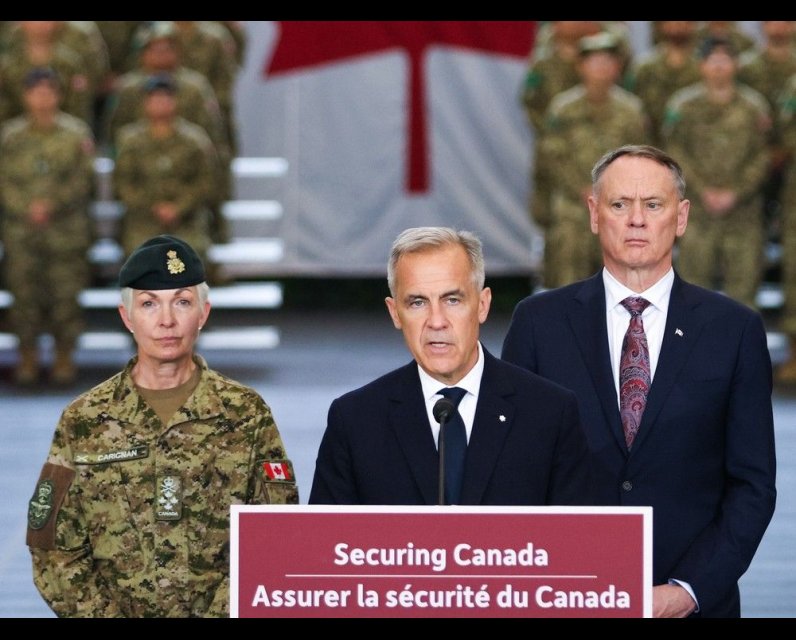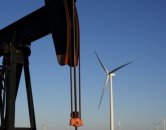Source Feed: National Post
Author: Catherine Lévesque
Publication Date: June 10, 2025 - 10:12
Canada’s F-35 purchase plagued by cost increases and delays: AG report
June 10, 2025

OTTAWA — Canada’s plan to replace its aging CF-18 fighter jets with American-made F-35s is now expected to cost $27.7 billion — nearly 50 per cent more than the original estimate in 2022 — plus another $5.5 billion to achieve full operation capacity.
Those are some of the findings made by Auditor General Karen Hogan, who tabled a report in the House of Commons on Tuesday. Her audit focused on whether the Department of National Defence (DND) would deliver the country’s fighter capability on time and on budget.
On top of the ballooning costs of the F-35s, Hogan found that the entire project is facing significant risks that could jeopardize the timely introduction of the new fleet.
Seven years after former prime minister Justin Trudeau vowed to never buy F-35s, his government finalized an arrangement with former U.S. President Joe Biden’s administration in December 2022 to buy 88 of these fighter jets by 2032.
The F-35s are expected to replace the outdated CF-18 Hornet fighter jets currently in use which will be gradually withdrawn from service between 2025 and 2032.
Amid tensions with U.S. President Donald Trump, former defence minister Bill Blair said a few months ago
in an interview with CBC
that the government is considering potential alternatives to the F-35 fighter jets.
In 2022, the government said the estimated costs for the F-35 contract were $19 billion. Hogan’s report found that DND’s estimates were based on “outdated data” and had instead been gathered during the competitive process for acquiring the F-35s in 2019.
“We found that the department was not using the annual 2022 estimates produced by the Joint Strike Fighter Program Office that were more up to date than 2019, which were showing that costs of the aircraft had already increased substantially,” read the report.
It also adds that DND was only 50 per cent confident in its 2022 estimate, meaning that the department expected the cost to either be greater or stay the same in equal measure.
According to the auditor general’s report, DND’s most recent estimates show that the cost of the program has increased 46 per cent, or $8.7 billion, between 2022 and 2024, for a total of $27.7 billion. The increase is due to global factors, including rising inflation.
However, the report noted that the amount did not include other elements “needed to achieve full operation capability,” such as infrastructure upgrades or advanced weapons which would add at least another $5.5 billion to the total cost of the F-35 program.
As a result, Hogan recommended that DND review the cost estimates for the fighter jet program “on at least an annual basis” and include in the total cost all elements to achieve full operational capability. The department agreed to these recommendations.
The audit also found that the construction of two new fighter squadron facilities — in Cold Lake, Alberta, and in Bagotville, Quebec — is more than three years behind schedule and that developing an interim solution could further balloon costs of the fighter jet program.
The delivery of the 88 fighter jets is set to occur between 2026 and 2032. In 2026 and 2027, the first eight F-35s will be sent to an air force base in Arizona where initial pilot training will start. All subsequent aircraft would be sent to Canada between 2028 and 2032.
Hogan’s report noted the original plan was for the facilities in Cold Lake and Bagotville to be ready when the first aircraft would arrive in Canada in 2028. But at the time of the audit, DND estimated that the completion of the two facilities would have to wait until 2031.
Finally, Canada is still facing a potential shortage of qualified pilots which could slow down the transition from CF-18s to F-35s. The auditor general had already flagged an issue with personnel shortages in a report in 2018, and it remains a challenge over six years later.
National Post
calevesque@postmedia.com
Get more deep-dive National Post political coverage and analysis in your inbox with the Political Hack newsletter, where Ottawa bureau chief Stuart Thomson and political analyst Tasha Kheiriddin get at what’s really going on behind the scenes on Parliament Hill every Wednesday and Friday, exclusively for subscribers. Sign up here.
Our website is the place for the latest breaking news, exclusive scoops, longreads and provocative commentary. Please bookmark nationalpost.com and sign up for our daily newsletter, Posted, here.
Two officers with a U.S. task force, one of them a special agent with the Drug Enforcement Administration and the other a detective with the New York City Police Department, had flown to the Czech Republic for the anticipated takedown of a man wanted in an extraordinary, politically sensitive murder-for-hire case.
The U.S. officers knew exactly when their target was to arrive in Prague on a flight from India and had given all the details to Czech authorities. International paperwork requesting the arrest and extradition to New York had already been sent for their wanted suspect: Nikhil...
July 5, 2025 - 07:00 | Adrian Humphreys | National Post
Experts say the bill, which cuts billions of tax credits for clean energy and electric vehicles, end a brief era where the U.S. and Canada were moving in the same direction.
July 5, 2025 - 07:00 | Sean Boynton | Global News - Canada
“Okay, you guys wanna hear a song about a … trade war? Pfffft.” No, Sebastian Grainger, drummer of brilliantly abrasive Toronto punk-dance duo Death from Above 1979. They did not.
July 5, 2025 - 07:00 | | The Globe and Mail



Comments
Be the first to comment